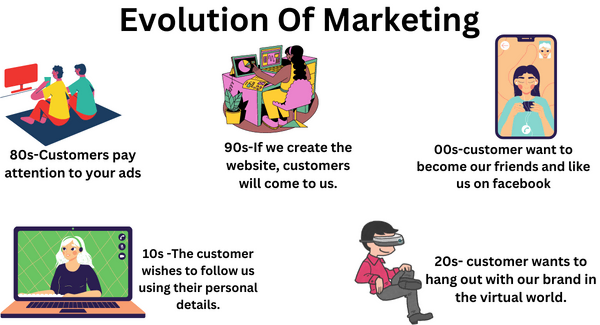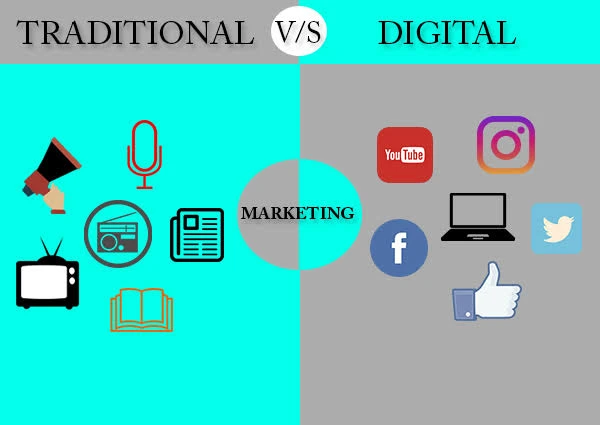The basic ideas that help companies properly sell their goods and services are known as marketing principles. These include knowing the product, choosing a reasonable pricing, selecting the best locations for sales, user-generated content and using attention-grabbing marketing techniques. Understanding your target, delivering a satisfying customer experience, and cultivating enduring relationships are all components of effective marketing. Businesses can satisfy client needs, differentiate themselves from rivals, and expand successfully in the market by following these guidelines.
What are the Principles of Marketing ?
Fundamental ideas known as the Principles of Marketing provide the basis for how companies interact with customers and advertise their goods and services. These guidelines focus on important topics and are frequently brought up as the 7 Ps of marketing:
- Product: Making sure the product provides unique benefits and satisfies consumer needs.
- Price: Keeping up a fair and competitive price that goes with the market value of the product.
- Place: Selecting the right channels to allow those who want to see the product.
- Promotion: Using social media, advertising, and other channels for successful communication.
- People: Developing connection with clients and guaranteeing excellent service.
- Process: Simplify the client journey to guarantee a smooth experience.
- Physical Evidence: Increasing credibility through presentation, packaging, and branding.
These rules help businesses in meeting customer needs, creating successful advertising campaigns, and achieving their goals in a competitive industry.
Core principles of Marketing
The basic concepts of the Core Principles of Marketing help businesses in creating and providing value to their clients while achieving their objectives. These guidelines guarantee that marketing plans are successful, customer-focused, and in line with business objectives.
- Customer-Centric Approach
- Set priorities knowing about and satisfying the needs and tastes of your customers.
- Put customer satisfaction first to create lasting relationships.
- Value Creation
- Provide goods or services that improve the customer’s life or solve problems.
- Underline that the product stands out because of its special characteristics and advantages.
- Market Segmentation and Targeting
- Organize the market into smaller groups according to tastes, behavior, or population.
- To make the biggest impact, focus on the most relevant audience.
- Competitive Advantage
- Identify what sets your brand above the competition and build on it.
- To stay in advance, provide better products, services, or prices.
Evolution of Marketing Principles

In line with shifts in consumer preferences, certain developments, and market requirements, marketing principles have evolved. During the sales era in the middle of the 20th century companies mostly used marketing concepts that focused on customers to buy the products.
The concept of digital marketing came into practice in the 2000s with the help of data driven strategies, real time interactions and online channels. The current marketing standards reflect the growing customer pressure on companies to be sustainable and socially responsible while placing even higher emphasis on environmental and ethical business practices. This development shows that marketing is flexible enough to adapt to the dynamic nature of the marketplace.
Principles of Effective Marketing
Reaching the correct target, providing value, and attaining measurable results are all components of effective marketing. The following fundamental ideas support effective marketing strategies:
Recognize Your Audience
Regular Branding Practices
Multi-Channel Strategy
Focus on Customer Experience
Transparent and Ethical Practices
- Recognize Your Audience : Research will help you understand the market you are targeting. To create customized solutions, identify their requirements, interests, and problems.
- Regular Branding Practices: Keep your visual identity, voice, and message consistent across all media. Build a strong brand presence to increase engagement and trust.
- Multi-Channel Strategy: To contact customers, use a variety of platforms, including other forms of communication, email, social media, and search engines. Maintain consistency among all platforms to guarantee a superb client experience.
- Focus on Customer Experience : At every point of interaction, from queries to post-purchase help, deliver outstanding customer service. A happy consumer is more likely to stick with you as a supporter.
- Transparent and Ethical Practices: Ads should be truthful, consumer privacy should be respected, and moral principles should be maintained. Put transparency and responsibility first to build confidence.
Principles of Digital Marketing VS Traditional Marketing

| Factor | Digital Marketing | Traditional Marketing |
| Reach and Accessibility | Worldwide reach via web channels; available at all times. | Geographically confined; dependent on print, radio, and television media. |
| Efficiency in terms of cost | Flexible spending plans; possibilities such as low-cost and pay-per-click (PPC) advertising. | High placement and production costs; an important initial investment is needed. |
| Customization and Targeting | Personalized advertisements are made possible by highly accurate targeting based on demographics, habits, and interests. | Wide scope; lacks the ability to be accurate and customized. |
| Statistics and Measure | Performance indicators and real-time data tracking make ROI measurement simple. | Influence that is hard to quantify properly; depends on indirect techniques like surveys or sales data. |
| Participation and Communication | Real-time feedback, shares, and comments allow for two-way connection. | In order communication; few chances to engage with customers right away. |
Benefits of the Marketing Principles
The marketing concepts give agencies an organized approach to connect with their target market, add value, and expand. They help companies in better targeting, understanding client objectives, and developing tactics that meet market expectations. Businesses can increase brand recognition, foster customer loyalty, and obtain a competitive advantage in their sector by following these guidelines. They also encourage sustainable growth and make decision-making more clear.
Key Points
- Having a greater awareness of the demands of the client: Helps in the development of goods or services that successfully solve client issues.
- Better Targeting: Improves resource waste by focuses on the right audience.
- Long-Term Growth: promotes long-term success by using customer-focused strategies and moral business practices.
- More Effective Decision-Making: promotes fast reactions to market developments and data-driven strategies.
- A rise in revenue and sales: Uses successful marketing techniques to increase conversions.
Topics that are related:
- “Mastering the Fundamentals of Marketing starts with understanding its principles.”
- “Explore the role of Digital Marketing vs. Traditional Marketing in shaping modern principles.”
- “See how Trends in Marketing influence core marketing principles.”
- “The use of Artificial Intelligence in Marketing is redefining the principles of engagement.”
- “Discover the significance of User-Generated Content in modern principles.”
- “Understand how Social Media Marketing fits within marketing principles.”
- “Display Advertising in Digital Marketing demonstrates the practical application of principles.”
- “Learn how Content Marketing is deeply rooted in marketing principles.”
- “Find out how Brand Marketing solidifies the core values of a brand.”
